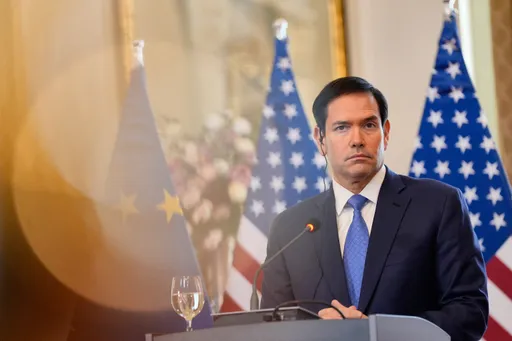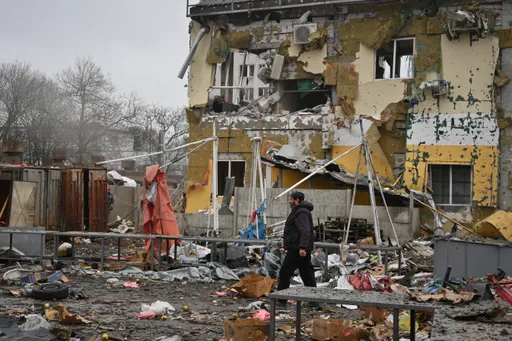Greek police fired teargas to disperse crowds gathered outside parliament on Thursday to protest against a deal over the name of neighbouring Macedonia, as an at times angry parliamentary debate spilled into the third day.
Several thousand people massed outside the Greek legislature, some of them chanting "traitors" as lawmakers debated ratification of an agreement reached with the neighbouring ex-Yugoslav state last year.
The Greek parliament delayed the expected approval of the UN-brokered deal by a day due to an increased number of lawmakers who wanted to have a say over it.
The so-called Prespes Agreement between Athens and Skopje changes the tiny Balkan nation's name to Republic of North Macedonia, ending a 28-year-old row between the two countries.
"We are one step before a historic event," Prime Minister Alexis Tsipras said, calling on lawmakers to approve the deal.
Although Greek Prime Minister Alexis Tsipras appears to have secured the support of at least 151 deputies in the 300-seat house to get the deal approved, opinion polls have shown most Greeks oppose the term "Macedonia" being used in any agreement.
TRT World's to Iolo ap Dafydd reports from Athens.
They fear it could lead to territorial claims over Greece's largest northern province of Macedonia and an appropriation of Greek cultural heritage.
"There is an unprecedented high number of MPs who want to speak," Greek parliamentary speaker Nikos Voutsis told journalists on Thursday as the vote was postponed until Friday, when it is scheduled to take place at 1230 GMT.
'We feel betrayed'
Several hundred protesters holding Greek flags had gathered by early evening outside the parliament in Athens, the scene of violent clashes with police on Sunday.
"We feel betrayed," Zografos Stathakopoulos, 47, said. "Most Greeks don't want this deal, but politicians are betraying us."
Tens of thousands rallied against the deal in Athens on Sunday and members of the Greek Communist Party (KKE) unfurled banners on the walls of the ancient Acropolis to protest against the deal on Thursday.
Parliamentary speaker Voutsis said close to 230 MPs had wanted to have their say. Most are given six minutes to speak, a rule which has been routinely broken in the highly-charged session, which opened on Wednesday.
The accord has already been ratified by Macedonia's parliament and Greek parliamentary endorsement is necessary for the country to eventually join the European Union and NATO.























